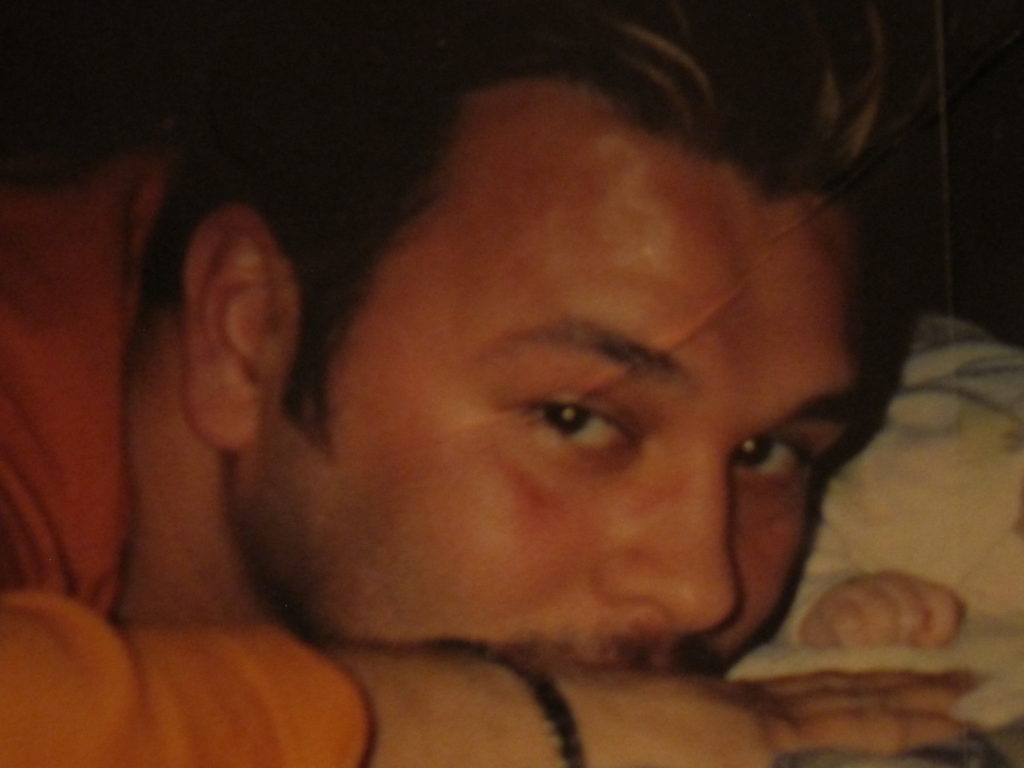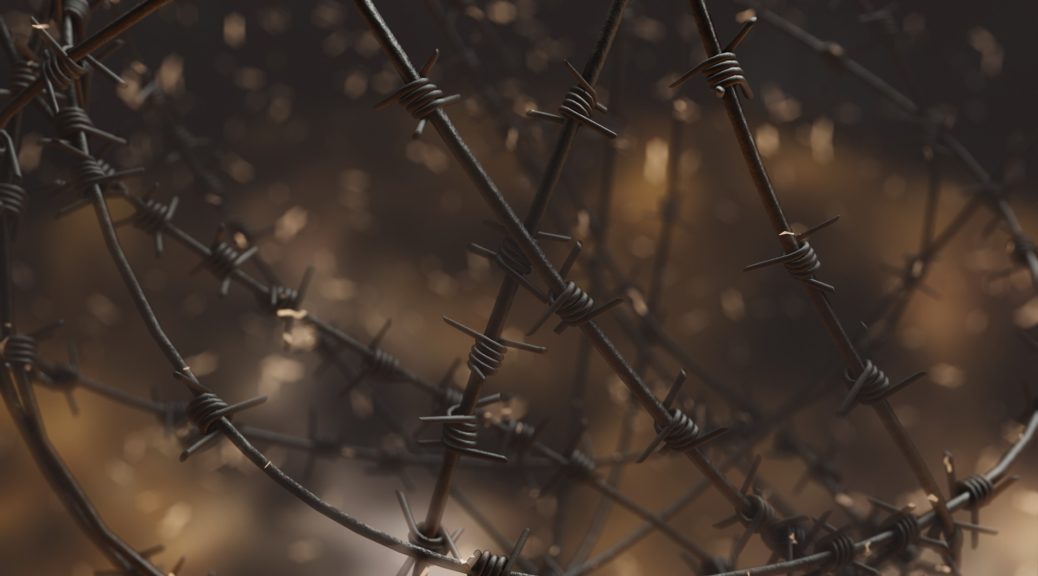Solitary confinement is exactly that… solitary. There are a lot of people who live there, but because they are each locked away in a separate box, it’s easy to forget there are people around you. I spent almost twelve years in solitary, twenty three hours of every day in my cell and everything brought to me. I was only just released over forty-five days ago.
While in solitary, inmates are handcuffed and escorted any time they leave their cell. Literally. So for nearly twelve years, every single time I would go to a visit or medical, there were two staff members on each side of me.
The day I left solitary, I was no longer cuffed and had no escort. I walked out of 12-building – alone… to join a line of inmates that were getting on a prison bus to go to a new unit. To say that I felt very weird – conspicuous – would be an understatement. I can’t overstate how uncomfortable I felt. I knew that it would be a tough transition, and for months I had worked hard to prepare myself, but in real time, the feeling of displacement was overwhelming. Had a person been able to hear my thoughts, they would have heard an almost psychotic back and forth monologue with myself.
‘People are staring at me…’
‘Yes! This is what you WANTED, dummy!’
‘Where do I go now? Where do I walk?’
‘What’s next…’
I didn’t know anyone and was struggling to converse, to keep eye contact. I found my voice wasn’t loud enough, and I was mumbling. It all affected my confidence, which compounded the problems and made them worse. I couldn’t believe what was happening. Apparently, having an awareness of the problem wasn’t going to be enough to solve it. Even as I write this, after a month and a half out, I feel stupid trying to convey the sense of displacement. Solitary damaged me, hurt my ability to relate to others in a normal way.
I was in solitary for attempting an escape. The policy on this states that I was to be released after ten years, but TDCJ had other ideas. The policy also states that the security tag, called a ‘Security Precaution Designator’ was to be dropped after ten years. Of course, TDCJ refuses to drop the designator, and rather than release me to minimum custody, where I rightfully belong, they released me to the most restrictive level of custody, G5. G5, aka ‘closed custody’, is very violent and full of drugs. Walking into the section, I could smell K2 burning and see all the walls and doors had burn marks from fires being set. The noise level was high.
My first cellmate was just thirty years old and only had twenty-nine months left until he discharged his sentence flat. This meant he had no incentive to behave well. He didn’t care about making parole. He was also what’s called a ‘wet head’, meaning when he was free, his drug of choice was marijuana laced with embalming fluid. Sadly, this had damaged his mind. He could hear invisible people whispering, and believed a female CO and an inmate were having sex behind the toilet. He was jittery and very suspicious. I’d been in the cell – my very first cell since leaving solitary, mind you – ten days, and he hit me. We fought, and the sergeant moved both of us to new cells.
My new cellmate was also a ‘wet head’… I wasn’t in the cell five minutes before we were fighting. This cellmate refused to let me unpack my property, going so far as to try and restrain me. I’d been out of solitary for less than two weeks and had participated in two fights and seen at least fifteen. I was very discouraged.
The next cellmate was okay. We got along for a few weeks, and then TDCJ moved me from G5 to a better custody level – G4. Here I can walk to the chow hall and eat. I get four hours a day out of my cell. My first day out I wanted to mail a letter but didn’t know where the mail drop was. Of course I didn’t want to reveal my ignorance and ask, so I waited until chow and followed a guy that had a letter in his pocket. Once at the chow hall I sat wondering where the salt and pepper shakers were and how to get my cup of juice refilled. Apparently, one simply holds up the cup and the inmate worker… I hesitate to call him a waiter… refills it. After eating, I followed the other inmates back to our section and then copied them as they racked up, went into their cells. Each day found me imitating some other inmate’s actions, relearning basic things about schedules and rules.
It’s been almost fifty days of fear and uncertainty. I find myself longing for the solitude, the safety and the predictability of solitary confinement, having to forcefully shift my mental gears to appreciate all the good things that come with being in population. I attend church and am to begin school soon. I got a sunburn. Yes, a happy occasion after twelve years without sun. I get fresh air and hot food – the quality hasn’t improved, but it’s no longer cold and spoiled. Soon, I might receive a visit with my children, contact rather than through glass, and I’m allowed to use the offender telephones and speak with people. I remind myself daily that ‘predictable solitude’ becomes a very lonely place. I’m still lonely, but now I at least have people around me.
There’s no doubt that not only does solitary confinement damage inmates, but that the damage is more insidious, more subtle than I could have ever believed. If the transition from solitary to general population was this difficult for me, how… almost… impossible will it be for me to integrate into society after having served thirty flat years in prison? Do not read that wrong. I haven’t given up. I will continue to improve.

ABOUT THE AUTHOR: Jeremy Robinson is author of The Monster Factory and is currently working on several projects. He can be contacted at:
Jeremy Robinson #1313930
Polunsky Unit
3872 South FM 350
Livingston, TX 77351
![]()
